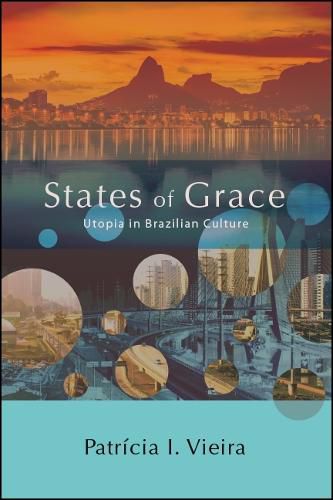Readings Newsletter
Become a Readings Member to make your shopping experience even easier.
Sign in or sign up for free!
You’re not far away from qualifying for FREE standard shipping within Australia
You’ve qualified for FREE standard shipping within Australia
The cart is loading…






States of Grace offers a novel approach to the study of Brazilian culture through the lens of utopianism. Patricia I. Vieira explores religious and political writings, journalistic texts, sociological studies, and literary works that portray Brazil as a utopian land of the future, where dreams of a coming messianic age and of social and political emancipation would come true. The book discusses crucial utopian moments such as the theological-political utopia proposed by Jesuit Priest Antonio Vieira; matriarchal utopias, like the egalitarian society of the Amazons; work-free utopias that abolished the boundaries separating toil and play; and ecological utopias, where humans and nonhumans coexist harmoniously. The uniqueness of the book’s approach lies in rethinking the link between messianic and utopian texts, as well as the alliances forged between progressive religious, socioeconomic, political, and ecological ideas.
$9.00 standard shipping within Australia
FREE standard shipping within Australia for orders over $100.00
Express & International shipping calculated at checkout
States of Grace offers a novel approach to the study of Brazilian culture through the lens of utopianism. Patricia I. Vieira explores religious and political writings, journalistic texts, sociological studies, and literary works that portray Brazil as a utopian land of the future, where dreams of a coming messianic age and of social and political emancipation would come true. The book discusses crucial utopian moments such as the theological-political utopia proposed by Jesuit Priest Antonio Vieira; matriarchal utopias, like the egalitarian society of the Amazons; work-free utopias that abolished the boundaries separating toil and play; and ecological utopias, where humans and nonhumans coexist harmoniously. The uniqueness of the book’s approach lies in rethinking the link between messianic and utopian texts, as well as the alliances forged between progressive religious, socioeconomic, political, and ecological ideas.